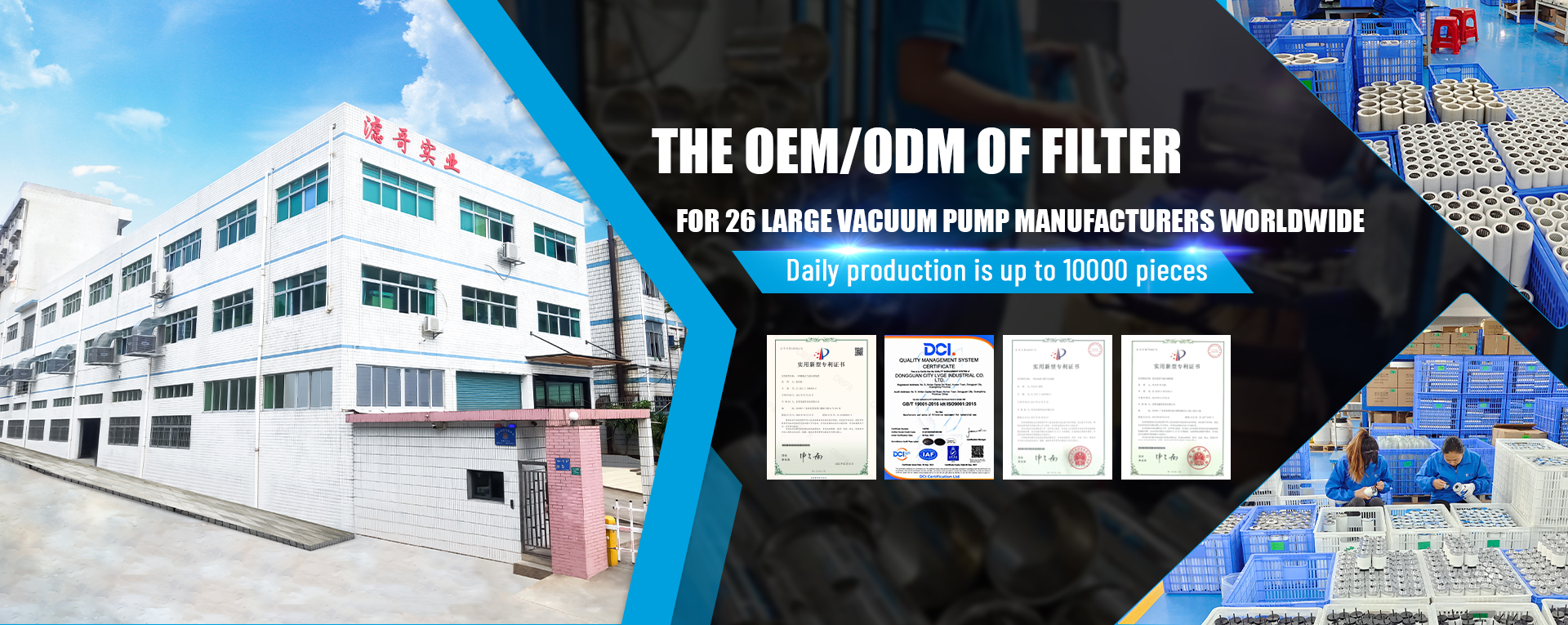-intake filter
Before delving into the specifics of vacuum pump filters, let's first learn what's the vacuum pump. A vacuum pump is a device that creates and maintains a vacuum within a closed system. It removes gas molecules from a sealed volume to create a low-pressure environment. Vacuum pumps are widely used in various industries, such as manufacturing, pharmaceuticals, food processing, and even in scientific research laboratories.
Intake filters are an essential part of a vacuum pump system, responsible for removing contaminants and debris from the pump's intake air. They play a crucial role in maintaining the efficiency and longevity of the vacuum pump, as well as ensuring the quality of the final product or process that relies on the vacuum.
The intake air of a vacuum pump often contains a variety of contaminants, such as dust, particles, moisture, and even gases. If these contaminants are not removed from the intake air, they can cause significant damage to the vacuum pump and compromise its efficiency and performance. This is where vacuum pump filters come into play. The intake filter acts as a barrier between the intake port and the pump itself. It captures and traps contaminants, preventing them from entering the pump and causing damage. The filter typically consists of a porous material that allows the air to pass through while trapping particles and debris. The filter media may vary depending on the specific application and the type of contaminants to be removed.
There are several types of vacuum pump filters available in the market, including particulate filters, coalescing filters, and molecular filters. Particulate filters are designed to capture solid particles, such as dust and dirt, while allowing air to pass through. Coalescing filters are capable of capturing liquid aerosols, such as oil mist and moisture, by merging small droplets into larger ones, making them easier to trap and remove. Molecular filters, on the other hand, can remove specific gases or chemicals from the intake air by adsorption or chemical reactions.
The efficiency and performance of a vacuum pump filter depend on its design, the filter media used, and its capacity to retain contaminants. Regular maintenance and replacement of the filter are crucial to ensure its effectiveness. Over time, the filter will become saturated with contaminants, reducing its efficiency and increasing the workload on the vacuum pump. Therefore, it is important to monitor and replace the filter as recommended by the manufacturer.
Not only do intake filters protect the pump itself, but they also prevent contamination of the process or final product that relies on the vacuum. For instance, in pharmaceutical manufacturing, a vacuum pump is often used to create a sterile environment. A filter ensures that no contaminants enter the product, maintaining its purity and quality.
In conclusion, intake filters are vital components of a vacuum pump system. They remove contaminants and debris from the intake air, protecting the pump from damage and maintaining its efficiency. By using the appropriate filter for the specific application, industries can ensure the quality and purity of their processes and final products. Regular maintenance and replacement of the filter are essential to keep the vacuum pump system operating at its best.
Post time: Aug-31-2023








